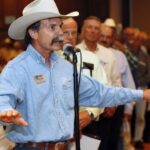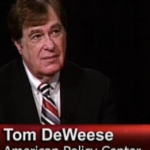By Chris Neefus

Washington (CNSNews.com) – According to a representative of the cattle and beef industry, America may need a “strategic hamburger reserve” if the Environmental Protection Agency (EPA) implements proposed new reguilations for cattle producers.
“From where I sit, (the Obama administration) appears to be aimed at destroying the cattle industry in America as we know it,” Tamara Thies, the chief environmental counsel at the National Cattlemen’s Beef Association, said on Capitol Hill last week.
“It is ironic that as we work to become less dependent on foreign oil, Obama policies are likely to make us more dependent on foreign beef. Maybe we’ll need to start a strategic hamburger reserve after the Obama administration is finished with us.”
Thies’ comments came at a hearing conducted by the House Republicans’ Rural America Solutions Group about the EPA’s proposed regulations on the industry, which include the toughest dust regulations in history – one which would significantly impact the rural economy by imposing steep fines on cattle producers who, Thies said, most likely cannot afford them.
“It is unlikely these realities are lost on the EPA, making one wonder if the real goal of the agency is to do away altogether with economic activity throughout the bread basket of this country and turn it into a vast national park,” she added.
The forum was held by Reps. Frank Lucas (R-Okla.), ranking member on the House Agriculture Committee; Sam Graves (R-Mo.), ranking member of the House Small Business subcommittee; and Doc Hastings (R-Wash.), ranking member of the House Natural Resources Committee, to consider several of the new proposed EPA regulations.
In a periodic review of its National Ambient Air Quality Standards (NAAQS), which allow the EPA to regulate certain forms of particulate matter in the air, the EPA determined that it might raise the standard so that only 65-85 µg/m3 of dust would be permitted in the air (as opposed to 150 µg/m3). Violating the proposed new NAAQS standards can result in civil penalties under the Clean Air Act.
The EPA published that draft policy assessment in the July 8, 2010 issue of the Federal Register.
“(EPA) is preparing to issue a proposed regulation that is twice as stringent as the current dust standard, and is more stringent than background levels of dust in many parts of the U.S,” Thies told the congressmen.
“Incredibly, we are talking about dust kicked up by tilling fields and harvesting crops, cattle movements, and pickups driving down dirt roads,”she said. “For agriculture, the current standard is already very difficult and costly to meet—doubling it would be virtually impossible.”
That new proposal also alarmed 75 members of Congress who represent rural districts, including Reps. Cynthia Lummis (R-Wyo.), Stephanie Herseth-Sandlin (D-S.D.), John Spratt (D-S.C.), and Bobby Bright (D-Ala.), who sent a letter to EPA Administrator Lisa Jackson on Sept. 27 urging the agency to “refrain from going down this path” on dust regulation.
“Considering the administration’s claim that it is focusing on revitalizing rural America and rural economic development, a proposal such as this would have a significant negative impact on those very goals,” they wrote. “We are hopeful that common sense will prevail and the EPA will refrain from causing extreme hardship to farmers, livestock producers, and other resource-based industries throughout rural America.
“Whether it is livestock kicking up dust, corn being combined, or a pickup driving down a gravel road, dust is a naturally occurring event in rural areas. Common sense requires the EPA to acknowledge that the wind blows dust around in these areas, and that is a fact of life.”
Jackson did not attend the forum on Capitol Hill last week despite receiving an invitation. A spokesperson for the EPA indicated they would have a reaction about why they were proposing these rules in a difficult economy, but did not do so by press time.
The dust regulation is one of several new proposals the EPA is considering, including regulating ammonia emissions from cattle operations; nationalizing standards for soil phosphorus levels, which determine where farmers can use manure; regulating greenhouse gas emissions; and greater regulation of farming on the Chesapeake Bay watershed.
“The fact is, the EPA is waging an unprecedented war to end modern production of animal agriculture,” Thies said in her testimony.
“EPA exhibits reckless indifference to scientific fact and, instead, imposes stringent regulations based on nothing more than its biased anti-animal agriculture agenda that will leave many cattle operations with no recourse but to shut down and eliminate jobs,” she added.



